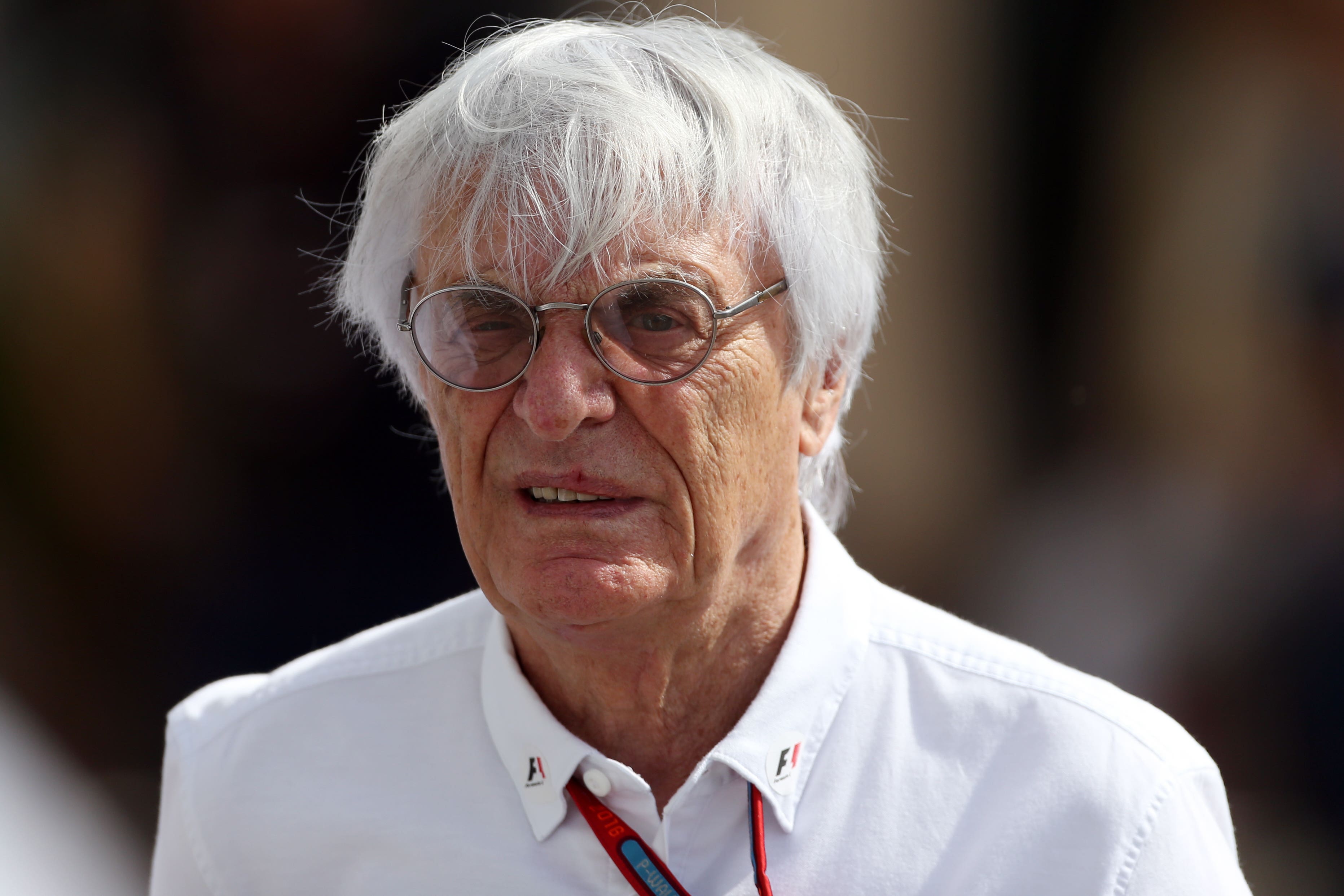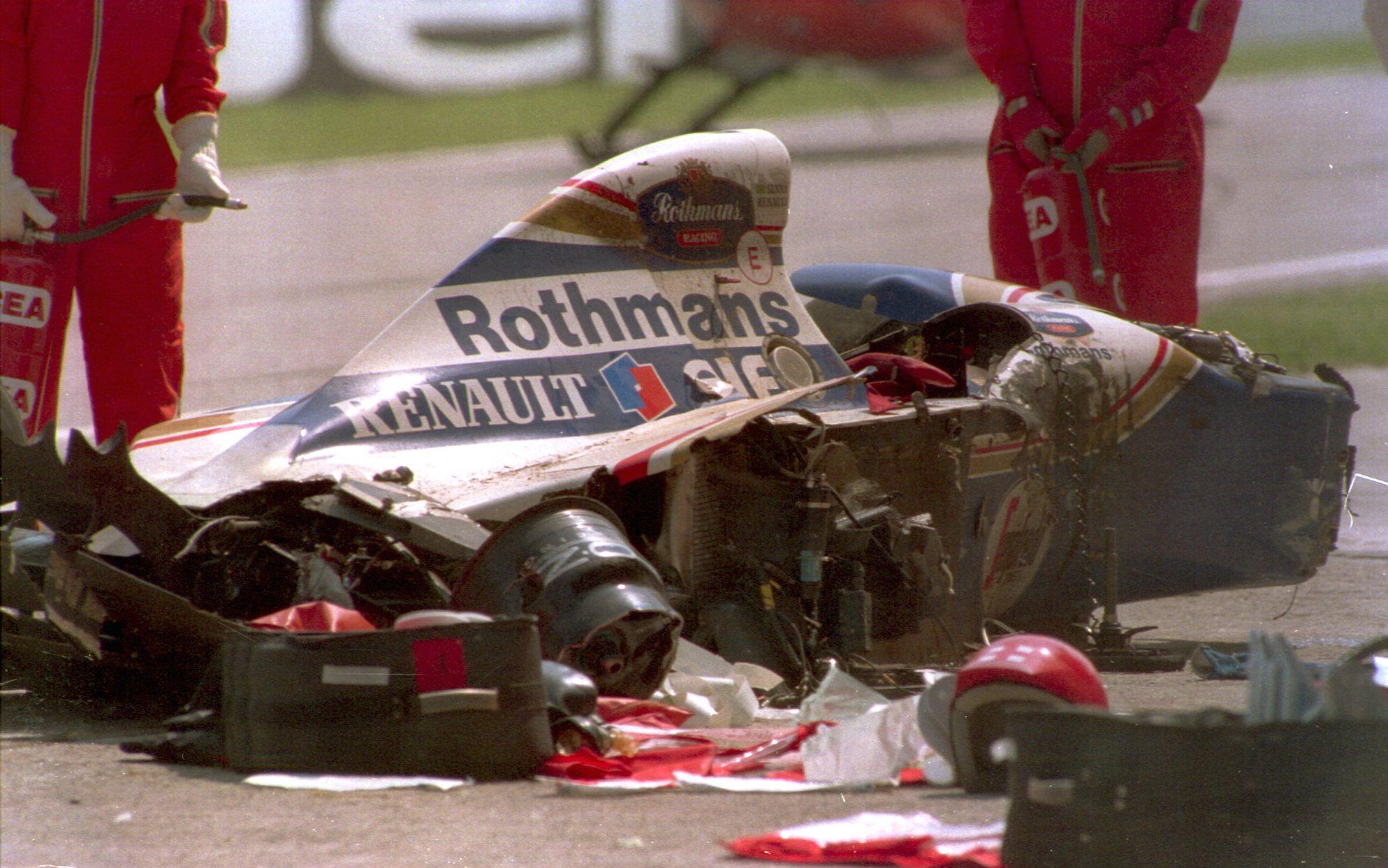Bernie Ecclestone: Max Mosley said ‘F1 would be cancelled’ after Ayrton Senna death
The Brazilian star died after a crash at the 1994 San Marino Grand Prix in Imola on 1 May 1994
Your support helps us to tell the story
This election is still a dead heat, according to most polls. In a fight with such wafer-thin margins, we need reporters on the ground talking to the people Trump and Harris are courting. Your support allows us to keep sending journalists to the story.
The Independent is trusted by 27 million Americans from across the entire political spectrum every month. Unlike many other quality news outlets, we choose not to lock you out of our reporting and analysis with paywalls. But quality journalism must still be paid for.
Help us keep bring these critical stories to light. Your support makes all the difference.
Bernie Ecclestone has revealed he was told Formula One would be cancelled in the wake of Ayrton Senna’s death.
Senna was F1’s brightest star, a sporting giant and an icon in his native Brazil but on lap seven of the ill-fated San Marino Grand Prix – a weekend that had already claimed the life of Austrian Roland Ratzenberger – he ran off the road at 190mph and hit a concrete wall.
He died instantly, aged 34.
Wednesday will mark the 30th anniversary of Senna’s death in Imola and Ecclestone, who ruled the sport for four decades, told the PA news agency: “It was just a disastrous weekend.
“If you think about all the things that happened, with Roland crashing and never getting out of his car, and then Senna, I really don’t think it would be possible for it to happen again.
“Max (Mosley – FIA president at the time) said to me afterwards that he believed it would be the end of Formula One. I said, ‘I think you are wrong and we will have to see’.
“We hoped it wouldn’t cause what Max had suggested might happen, but it was just a disaster. It wasn’t a good weekend, and it seems to me a lot longer than 30 years. He was just so unlucky to die in that accident.”
While leading the race, Senna lost control of his Williams at the notorious Tamburello corner. The right-front suspension of the triple world champion’s car penetrated his crash helmet.

However, the race restarted less than 40 minutes later with Michael Schumacher winning. Damon Hill, in the other Williams, crossed the line in sixth, two places ahead of Martin Brundle.
Now a respected television pundit, Brundle has since said he was “angry” that “we raced past a pool of Senna’s blood for 55 laps”.
Ecclestone, 93, continued: “Should we have stopped the race? I don’t think so. It wouldn’t have helped him (Senna) in any way, shape or form.

“When these things happen, they all happen so quickly that you don’t really have that much time to think. Legally, it should have been stopped, because we now know he died at the circuit.
“But in the end, it came down to commercial problems, people who would have wanted refunds and all these sorts of things. And the other side of it wasn’t really taken into consideration.”
Miami plays host to the fifth round of this year’s championship this weekend, with F1 expected to pay tribute to Senna at the Emilia Romagna GP in Imola on May 19.
Senna’s death remains the last time a driver was killed during an F1 race. Jules Bianchi died nine months after injuries he sustained at the Japanese Grand Prix a decade ago.
“Formula One became more popular after Senna’s death,” added Ecclestone. “It got so much worldwide publicity that people who had not watched Formula One before started to become interested.
“But I hope we will never see something like that again, and I think today, with the way everything has improved with safety, thank God, the chances are so much smaller.”



